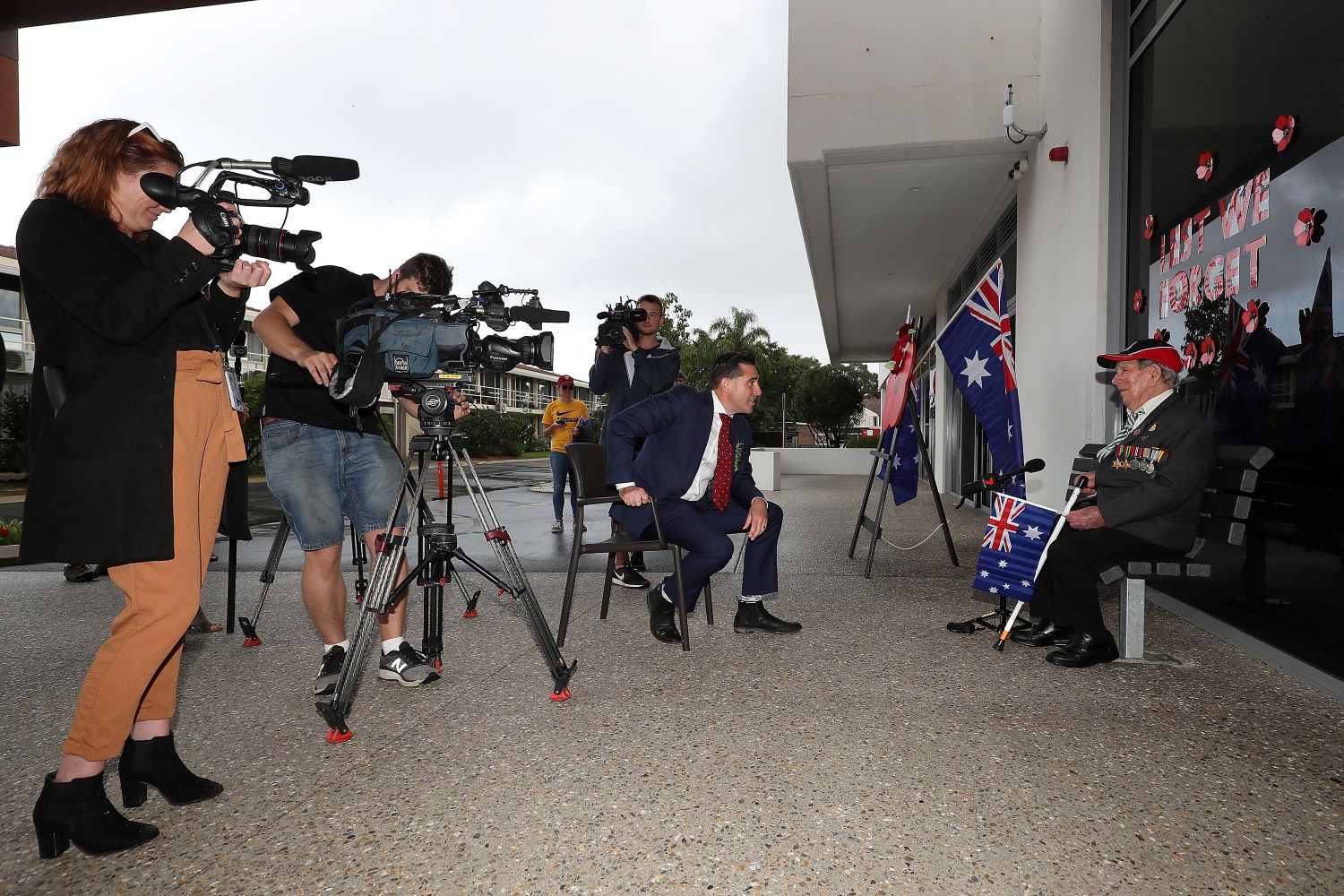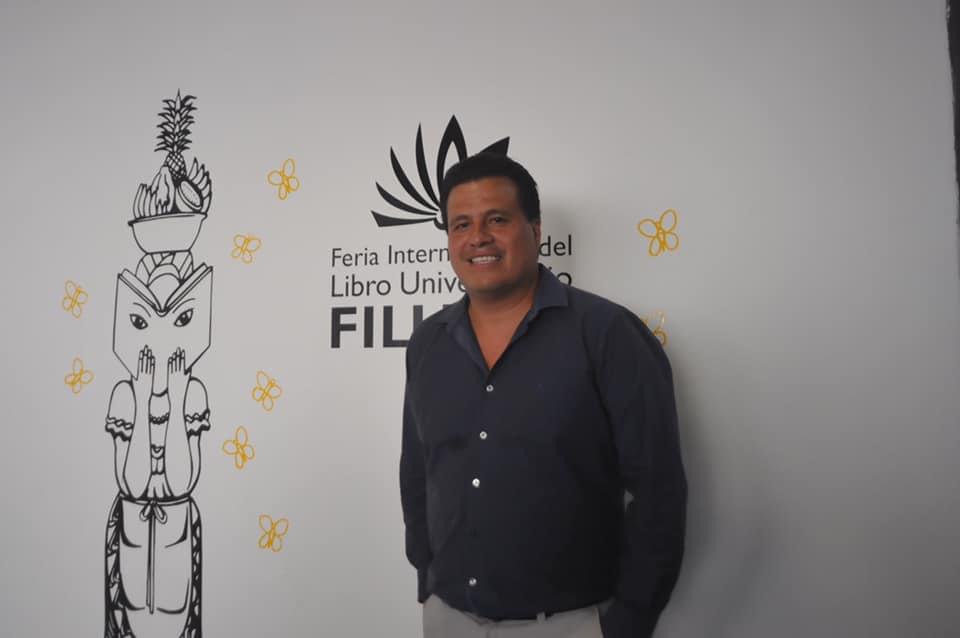A writer reflects on the absurdity - and naivety - of journalists who place themselves at the centre of the stories they cover.
"In your journey to become a journalist, everything around is important, but the most important is to write as God commanded, and God wants you to be a reader at first, and to read more constantly." - Meguel Angel Bastenier
When we were leaving college halls to take on the job market as novices in journalism, we all made a lot of mistakes.
Those mistakes were what led us to accumulate experience and, later, to reflect on the foolish things we did when we were starting out in journalism – the career which Gabriel Garcia Marquez calls "the best career in the world".
In our early days in journalism, we all wanted to take on the whole world and then tell everyone about it. We had a naively false perception of the world – believing that readers would be interested in our personal opinions on current events.
That perception was a journalistic sin - as serious as gluttony, arrogance or greed. Readers of newspapers and magazines are primarily interested in what we know about the facts of a story. They are interested in the information that we can provide about the murder of a politician, or the fall of a tower, a building collapsing because of an earthquake, or about a ferry sinking in the sea. They want to know about the injury that the football player who holds number 10 in the world rankings has suffered just before a match day in the UEFA Champions League.
But what they do not care about, is what you, the journalist, think about those things.
So, don't write phrases along the lines of: "As a journalist, I think that..." The reader wants the news, with documents and sources, he wants a context in which to discuss his own opinion with friends, or perhaps with an anonymous passerby in a bar or cafe, or at lunch with his family.
The most arrogant thing that a journalist can do is to Not Listen
The reader appreciates journalistic stories that provide accurate and balanced descriptions of different characters and scenarios. It is interesting to him if you explain in detail the course of two trains which crashed in a European country, or the events of a final boxing match, or the detailed course of events through which a new king or president is inaugurated.
But when the journalist starts describing all the hardships he himself endured and the obstacles he overcame to reach the desert where he was to tell a story - or about thousands of actions and procedures he was forced to complete to obtain a press pass to enter the media hall to cover the football final match - or about the few hours he was allowed to sleep before he rushed in the morning to cover a bomb explosion – then he loses his readers. The reader wants to know about the bomb – not what it took for you to tell him about it.
Good journalists do not do this, so have some respect for yourself and your readers, please. Readers are tired of these dramatic stories and the descriptions of your personal adventures. They are not interested in your personal desire for fame and glory.
Leave that to the politicians and TV stars. Leave those naive ways to YouTubers and "influencers" – the people who wouldn't drop their phones even if they fell off their skateboards. Leave it all to those fame-mongers who like to be filmed in daring situations with wild animals, or who stick strange things up their noses to gain the attention of their social media followers. This is not journalism.
The Argentine writer and historian, Martin Caparros, once said that he often finds himself forced to abandon reading so-called "fun" stories in global media - out of sheer boredom. He has no time for writers who put themselves at the forefront of the story.
It’s a bit like when you're at the cinema, approaching the climax of the movie – everyone trying not to blink lest they miss the crucial moment. Suddenly a large man in the first row stands up holding his popcorn and starts loudly holding forth on the progress of the film to his son who is sitting right next to him.
It just ruins it for everyone. But it's a trap that many journalists – particularly in their novice days of their careers – can fall into.
You are not in the starring role
In their desperate bid to demonstrate their starring roles in big news stories, journalists can end up ruining them, too. Announcing that you have a story on social media, for instance, is usually a mistake. You post the basics of a story you are working on – along with a couple of particularly poor photos – and you alert every other publication to it – as well as all the social media drones.
By the time your carefully researched, articulate and informative final article or TV news story comes out, the story has already been cheapened by doing the rounds on Facebook and Twitter in a much more simplistic form – and everyone's already bored of it. So, don’t fall into the seductive trap of "instant publishing" on social media before you have finished researching your story.
But the most arrogant thing that a journalist can do is to Not Listen. In our early days of our careers we were often more concerned with demonstrating just how well informed about a subject we were – and we forgot to listen to the answers we were being given.
It can be easy to forget that our job is to go out and seek answers. It is not our job to provide answers by ourselves. It is good to have advanced knowledge about a subject, but only so that can inform our search for the answers, not so we can brag about it to the very people we should be listening to for the actual answers.
So, when you are interviewing an important "player" in a story – a politician, a TV star or a football player, say – don't make them feel like they are wasting their time with you. Don't get all excited by your own knowledge of a story – stay calm and impassive during the interview. Find the optimal balance between short and precise questions, and more probing, journalistic ones. Give your interviewee the space to react and fully answer your questions. Don't just ask provocative, "clever" questions for the sake of seeming provocative and "clever". You may put your interviewee on the defensive and make them more reluctant to engage.
Be a great journalist - don't be an arrogant one
Instead of showing off your knowledge of the subject, devote your energies to finding out more about your interviewee. The former deputy editor of the Spanish newspaper, El Pais, Miguel Angel Bastenier, always says: “A journalist must always tap deeply into the guest's emotions.” In the other words, he must prepare in advance by studying the person he is going to meet, and to inform himself about this character from other articles and media sources. He should document this information, and work out what questions this person has never yet answered. What are the areas in his public or private life that have not yet been covered? Who is this person? What motivates and moves him? These are the things that will make the journalistic conversation flow.
Above all, exercise healthy skepticism – don't just accept what you are told as the final truth. The Columbian journalist, Javier Dario, once said to me: "If your mother says she loves you – check to make sure it's true!"
I think of these words often and I find myself continually testing his theory whenever I receive information that doesn't quite add up – such as a press release about a money-spinning investment which seems too good to be true or a suspicious statement from a government official that doesn't quite ring true. If it seems too good to be true – it probably is.
And, finally, don't bore your readers. It's true that there is a formula for writing news stories – the rather tedious five Ws (who, what, where, when and why) and the order of events (subject, verb, object). But we can make it more interesting than just that.
Start your script with a catchy or provocative quote from someone you have interviewed. Or, start with a statement that's not usually made. Paint an unfamiliar scenario. Hook the reader in with something a bit exceptional. As Garcia Marquez once said: “The best news is the well-narrated news, not the news as it is first stated.”
So, be a great journalist. Don't be an arrogant one.
Noe Zavaleta is a writer and journalist from Mexico
With translation by Zaid Hani Almomani
The views expressed in this article are the author’s own and do not necessarily reflect Al Jazeera Journalism Review’s editorial stance.





































